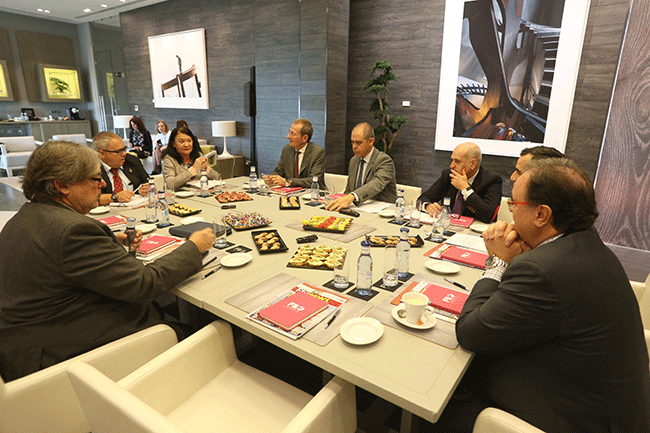Spain's role in the European space industry

Spain and its institutions are going from strength to strength in Europe’s space industry. Its space-sector 2016 turnover added up to 833 million euros, employing almost 3500 people.
Spain’s current space panorama was the subject of debate in the working breakfast put on by the leading aerospace review Fly News on 19 October last. Key participants included Juan Ureña, coordinator of the space projects of Spain’s Industrial Technology Development Center (CDTI in Spanish initials); José Guillamón, Head of EO, Navigation and Science of Airbus Defence and Space); Jorge Potti, CEO of GMV Espacio and Vice-President of the Space Committee of the Spanish Association of Space, Aeronautics and Defense Technology Companies (Asociación Española de Empresas Tecnológicas de Defensa, Aeronáutica y Espacio: TEDAE); Pedro Luis Molinero, Hispasat’s Operations Manager; and Ignacio F. Tourné, Business Development Manager of Elecnor Deimos.
The chosen venue for this debate about the sector’s present and future was the site of FBO Multiservicios Aeroportuarios in the Executive Aviation Terminal of the airport Adolfo Suárez Madrid-Barajas. Special stress was laid on the role of the new stakeholders represented by New Space, private and commercial companies operating independently of governments and making space-access a more flexible proposition.
Jorge Potti stressed public-private collaboration as the main factor in winning Spain its pole position at European level. For the fact is that Spain is now the fifth biggest contributor to ESA’s budget.
Featuring large in this event were earth-observation projects, where Europe is world leader, like Copernicus; space monitoring programs; or the inputs of the Spanish satellite operator Hispasat. As if this were not enough, from late 2016 until 2019 Spain will be holding the presidency of the European Space Agency (ESA), hosting the agency’s next Ministerial Council at the end of this stint.
Spain in Space
Spain’s entry in the commercial space race dates back to the creation of the National Institute of Aerospace Technology (Instituto Nacional de Técnica Aeroespacial: INTA). In 1973 the European Space Agency was set up, coming into full operation two years later.
Spain was one of ESA’s founding members. Since then its space career has never looked back; the country has participated in the whole range of space missions, from communications to earth observation and space access, among others.
The European Commission highlights the space industry’s importance as a driver of European development. With a track record of over 80 satellites designed and launched, ESA now works with a 5.75 billion euro budget. This bodes well for Spain, which works on most of its projects.